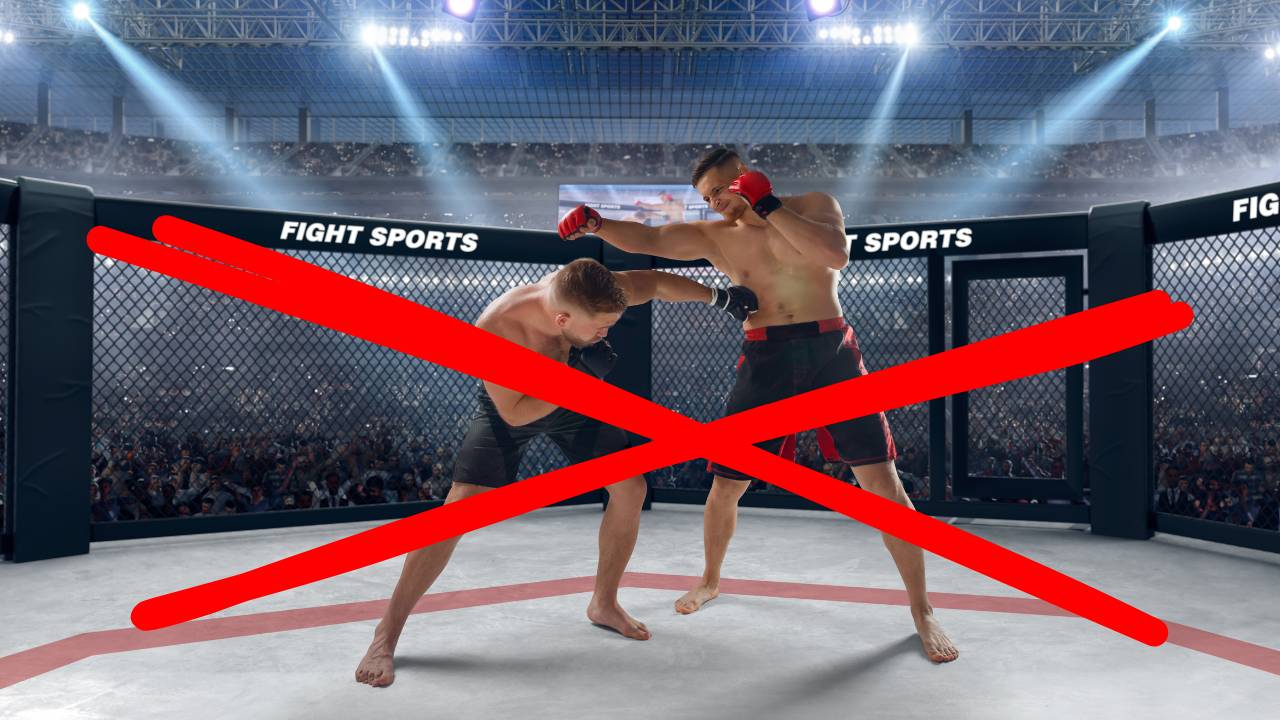Understanding the terminology used in UFC is crucial for fans and bettors alike. One term that often raises questions is “no contest.”
A “no contest” occurs when a fight ends without a winner or loser, usually due to circumstances that prevent a fair and conclusive outcome.
For those engaged in UFC betting, understanding the nuances of a “no contest” is vital, as it directly affects wagers and payouts. It is also important to distinguish a “no contest” from similar outcomes, such as a “technical draw.”
Best UFC Betting Sites
What is a “No Contest” in UFC?
In UFC, a “no contest” is declared when a bout is stopped due to accidental injury or other factors that make it impossible to continue the fight.
The Unified Rules of Mixed Martial Arts state that if a fight cannot continue due to an unintentional foul or other unforeseen circumstances before a sufficient amount of time has elapsed, the bout is ruled a “no contest.”
This ruling ensures fairness by nullifying a fight that did not conclude under normal conditions.
Neither fighter is awarded a victory or a loss, and the record reflects the fight as having no result.
For example, an accidental eye poke that renders a fighter unable to continue would typically result in a “no contest.”
Scenarios Leading to a “No Contest”
Several situations can lead to a “no contest” ruling:
- Accidental Fouls: Unintentional illegal moves, such as groin strikes or eye pokes, that incapacitate a fighter and prevent the continuation of the match.
- Injuries from Accidental Contact: If a fighter sustains an injury from an unintentional clash of heads or other incidental contact that halts the fight.
- External Interference: Situations such as cage malfunctions or interference by unauthorized individuals.
- Failed Drug Tests: Post-fight drug test failures can retroactively change a fight’s result to a “no contest,” as seen in high-profile cases like Anderson Silva vs. Nick Diaz.
What Happens in UFC Betting When a “No Contest” Is Declared?
For bettors, a “no contest” usually results in the voiding and refunding of bets.
Most UFC betting sites refund wagers if a fight is ruled a “no contest,” as there was no definitive winner or loser. This applies to most betting markets, including moneyline, method-of-victory, and round betting.
If you have the bet in a parlay, that leg of the parlay is void, and the total odds are reduced accordingly.
However, timing matters. If a fight’s result is later changed to a “no contest” due to a failed drug test or other post-fight issues, bets are typically settled based on the official result at the time of the fight.
This means bettors do not receive refunds for bets placed on a result that was subsequently overturned.
What Is a “Technical Draw,” and How Does It Differ?
A “technical draw” is another outcome that can affect UFC betting.
While a “no contest” nullifies the fight entirely, a “technical draw” is recorded when both fighters are unable to continue due to accidental fouls or injuries, and a sufficient portion of the fight has elapsed to allow for judges to score the bout.
For instance, if an accidental clash of heads causes a severe cut and the fight is stopped after two completed rounds in a three-round bout, it might be ruled a “technical draw.”
In this case, judges’ scores for the completed rounds are used to determine that neither fighter had a decisive advantage, resulting in the draw.
Betting Implications of a “Technical Draw”
Unlike a “no contest,” where bets are voided and refunded, a “technical draw” affects bets differently. In most cases:
- Moneyline bets are settled as losses for both fighters since there was no winner.
- Prop bets for specific outcomes, such as knockouts or submissions, are typically voided, as those results didn’t occur.
- Round and method-of-victory markets may also be voided, depending on the specific rules of the sportsbook.
Because a “technical draw” is scored rather than nullified, it’s important for bettors to carefully read the terms and conditions of their chosen UFC sportsbook to understand how such outcomes are handled.
Notable Examples in UFC History
Both “no contests” and “technical draws” have occurred in high-profile UFC bouts, often under dramatic circumstances. For instance:
- Kevin Holland vs. Kyle Daukaus (October 2021): An accidental clash of heads led to a knockout, but upon review, the bout was declared a “no contest” due to the accidental nature of the contact.
- Eddie Alvarez vs. Dustin Poirier (May 2017): An unintentional illegal knee by Alvarez resulted in a stoppage and a “no contest.”
- Frankie Edgar vs. Gray Maynard 2 (January 2011): Although not a “no contest,” this bout highlighted the fine margins between outcomes, with Edgar retaining his title after a majority draw that included technical scoring.
Understanding these rulings and their contexts helps bettors appreciate the complexities of UFC outcomes and how they influence betting.
Our Thoughts on “No Contest” or a “Technical Draw” in UFC Betting
The distinction between a “no contest” and a “technical draw” is vital for UFC bettors.
A “no contest” nullifies the fight entirely, leading to voided bets and refunds, while a “technical draw” involves scoring considerations and can result in different betting outcomes.
By properly understanding these terms and their implications, bettors can make more informed decisions and better navigate the world of UFC betting.








